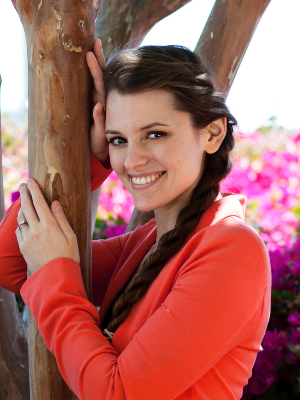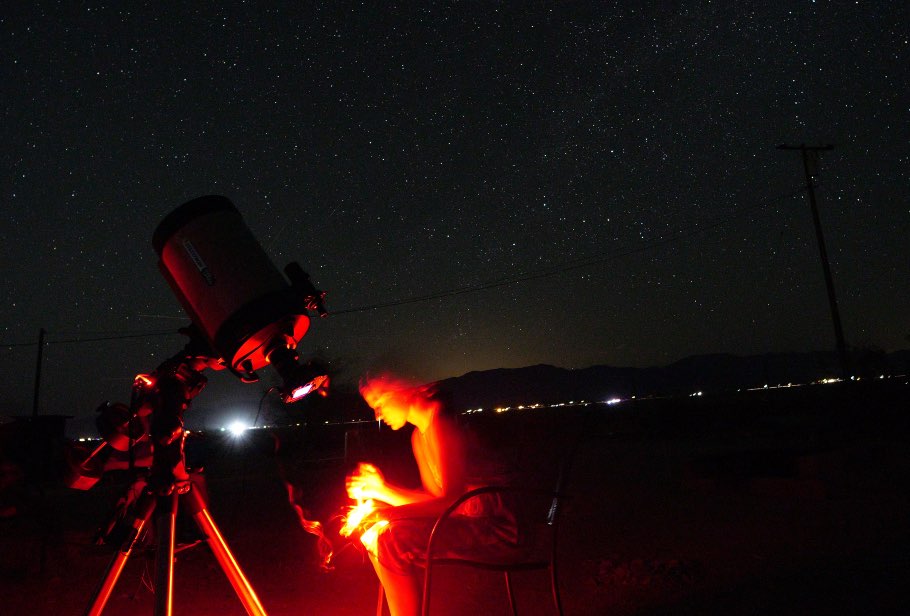Meet a Postdoctoral Scholar: Julia Gauberg
January 27, 2023

Name: Julia Gauberg
School of Biological Sciences Laboratory: Assistant Professor Stacey Glasgow
PhD Institution: University of Toronto Mississauga
Tell us about your field of study
The nervous system is essential for producing movement, and movement is how we express most sensory, cognitive and emotional processes. Human neurodevelopmental disorders that affect movement are either fatal or extremely debilitating, and most lack therapies or cures. Movement requires careful control of muscles in our body, and the nerve cells that directly control these muscles are located in the spinal cord. These nerve cells, called motor neurons, activate muscles in the appropriate sequence to (1) coordinate body movements and (2) adjust movements in response to sensory information from the environment. For motor neurons to function properly, they need to be correctly positioned in the spinal cord during embryonic development. Improper motor neuron positioning during development can have severe effects on movement and coordination in adult animals.
My research focuses on answering the following question:
What are the molecular mechanisms that control motor neuron positioning in the spinal cord?
To answer this question, I study the role of transcription factors. transcription factors are proteins that become activated in a very specific sequence throughout development and act as "master regulators" that control expression of a variety of genes. In the spinal cord, transcription factors are proteins that become activated in a very specific sequence throughout development and act as "master regulators" that control expression of a variety of genes. In the spinal cord, transcription factors have been found to regulate genes important for motor neuron development, migration and muscle innervation. I am examining the function of one family of transcription factors that has been found to be essential for the development of other tissues, but its role in motor neuron positioning and development is unknown.
Why is this important?
The regulation of motor neuron development and positioning in the spinal cord is essential for animal development but is not completely understood. Our work provides fundamental insights into this process, which has broader implications on research into neurodevelopmental disorders and spinal cord injury treatment. Many neurodevelopmental disorders that affect parts of the brain and spinal cord that regulate movement currently have no treatments or therapies. Additionally, stem cell transplantation has been proposed as a promising therapy for spinal cord injury. Understanding motor neuron development, positioning and muscle targeting can help increase the efficacy of this type of therapy. Therefore, our research will provide a foundation for understanding the developmental process necessary for treating human movement disorders and injuries.
What does a typical day look like for you?
My days start with me checking in on my animals, but what I do next varies from day to day! I usually spend my day running various experiments to answer our research questions, which can involve looking at nerves of transparent animals at different stages of development, examining the DNA/RNA of motor neurons, and looking at cells in the spinal cord under a microscope. I also have days when I read scientific literature in order to apply for grants/scholarships or write manuscripts. Finally, I dedicate time every week to training undergraduate students, as well as participating in academic service and outreach activities.
What do you enjoy most about your job?
My favorite part of working in the lab is the fact that I am always learning. The process of mastering hands-on skills and gaining an understanding of how animals work on a cellular and molecular level is incredibly fulfilling. Additionally, when I learn something, it provides me with the opportunity to teach others and contribute to their professional growth, which is a true privilege!
What advice do you have for someone starting in a new postdoctoral position at UC San Diego?
Learn about and take advantage of the resources that are available to postdocs at UC San Diego. There are many professional development workshops, certificate programs and training sessions that can help you become a better communicator, leader, teacher, etc. One great place to start is the Postdoc Association (PDA). I originally started out as a volunteer with the PDA, which allowed me to connect with the postdoc community at UC San Diego and learn about these resources. Currently, I am an executive member of the PDA, where I help host public outreach events and organize the career development symposium, so feel free to reach out if you would like to be involved!

What is your favorite type of food?
I love all food! I believe food is a vehicle for people to get together and connect, and I cherish any opportunity to do that.
What's something most people don't know about you?
I used to be a professional portrait photographer. When I started graduate school, I ran out of time to run a business, but I still do photography as a hobby. Nowadays I focus on astrophotography of galaxies and deep-sky objects!
